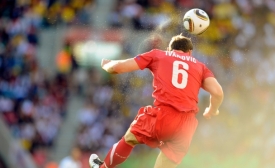sports diplomacy

Barry Sanders explores the public diplomacy potential of sports.
Sport is a gigantic and powerful medium for the international spread of information, reputations and relationships that are the essence of public diplomacy. The money spent world-wide on sport dwarfs what any government spends on public diplomacy. The size of the global audiences for sport and the audience’s level of interest exceed those of any other subject matter, including political news and the movies. The nature of sport—in its human striving for excellence and in its competition, its winners and losers—carries its own messages.
An important asset that New Delhi has failed to exploit vis-à-vis its neighbours is its soft power. Sports, economy, Bollywood, education, infrastructure, healthcare, tourism, history and heritage — there is so much that can be used by the country to influence its neighbourhood.
Using sports as a means to build stronger people-to-people connections and empower young people worldwide, the U.S. Department of State’s Bureau of Educational and Cultural Affairs and the National Basketball Association (NBA) announced today that NBA legends...will travel to Africa as sports envoys
It must be a testament to the dearth of interesting diplomatic discussions that a brawl between the Georgetown Hoyas and the Bayi Rockets became the headline news out of the U.S.-China summitry between Vice Presidents Biden and Xi. For many, the event became a metaphor for the animosity presumed to underpin the U.S.-China relationship and, possibly, a lack of respect to Biden.
‘Sports diplomacy lives!” raved a former national security official traveling with the Georgetown University basketball team on a visit to China timed to coincide with Vice President Biden’s trip this week. That was before a brawl ended the Hoyas’ game against a professional Chinese team tied to the Chinese military.
Sports diplomacy, they might say, makes for a great story, but seldom has a genuine geopolitical impact. The legendary Christmas ceasefire and football match between German and British troops in 1914 was followed by the most vicious carnage the world had ever seen.
When an encounter planned to generate good will disintegrates into violence, the important thing is to keep it in perspective and distill the right lessons from the event—not to limit further matches.







